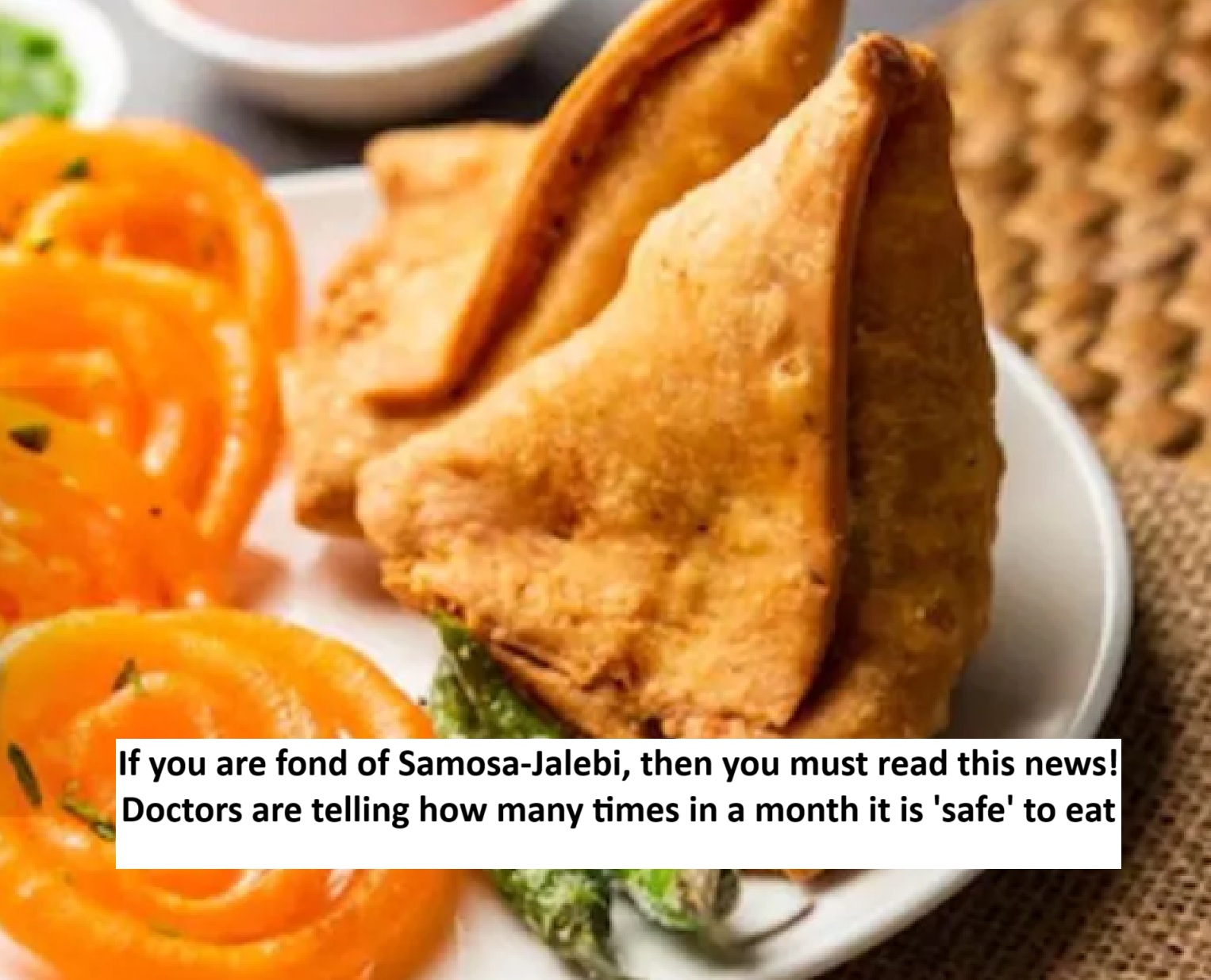
News Topical, Digital Desk : In the past, many media reports claimed that warning labels will be put on foods like samosa, kachori, jalebi. However, recently it has been clarified by the government that no such label will be put on these foods. A post was issued by PIB stating that no health warning will be put on these foods.
The doctor said that samosa and jalebi are popular Indian snacks, which are loved for their taste, but they also have bad effects on health. Although it is okay to eat them occasionally, making them a regular part of your diet can pose serious health risks. Let's know how these snacks affect your body:-
Deep frying and trans fats
Both samosas and jalebis are deep fried, which increases the levels of trans fat and saturated fat in them. Trans fats are particularly harmful because they increase bad cholesterol (LDL) and decrease good cholesterol (HDL). This imbalance in the body increases the risk of heart disease, blockage in arteries and other heart-related problems.
High Sugar and Glycemic Index
Jalebi is soaked in sugar syrup, which makes it very high in sugar. This causes blood sugar levels to rise rapidly, increasing the risk of type 2 diabetes and insulin resistance. On the other hand, samosas often contain refined flour and potatoes, which have a high glycemic index and can have a similar effect on blood sugar levels.
Digestion and weight gain
Refined flour, fried items and sugar - all three make these snacks difficult to digest. Regular consumption can slow down your metabolism and lead to fat accumulation, leading to obesity over time. These foods have little or no nutritional value.
Who should avoid it
Now you must have realized how harmful foods like samosa and jalebi are. However, for some people, it can be more harmful. Diabetic patients should stay away from jalebi due to high sugar content in it. On the other hand, people suffering from high blood pressure and heart disease should avoid both these snacks due to the amount of fat and salt. Pregnant women, children and the elderly should also eat them in limited quantities.
How much is safe to eat?
In response to this question, the doctor said that if you are healthy, you should not eat more than one samosa a week. On the other hand, jalebi should be eaten once or twice a month, in small quantities. Samosas and jalebis may be tempting, but they should be eaten in limited quantities. It is okay to enjoy them for taste occasionally, but including them regularly in your diet can cause serious health problems.
--Advertisement--

 Share
Share



